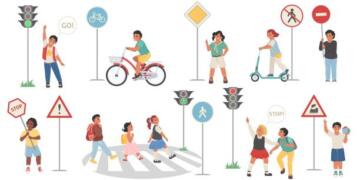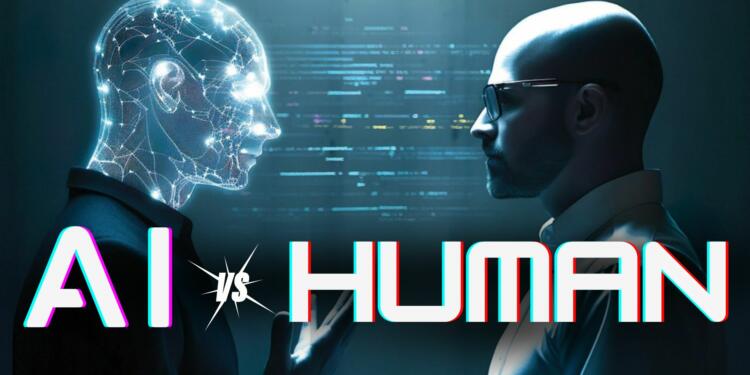Artificial Intelligence (AI) has long been a topic of fascination and speculation, with experts debating its potential to surpass human intelligence. As we delve deeper into the realm of AI development, the question arises: Could AI indeed become more intelligent than humans and ultimately rule the future or decide the fate of Humanity?
The Rise of AI Dominance
Artificial Intelligence (AI) development is hurtling forward at an unprecedented pace, driven by groundbreaking innovations in machine learning, neural networks, and computational capabilities. Visionaries such as Elon Musk, Ray Kurzweil, and Geoffrey Hinton have boldly proclaimed that AI’s ascent to supremacy over human intelligence is not just a distant possibility but an impending reality, poised to unfold within the coming decades.
The exponential growth in AI capabilities owes much to the relentless pursuit of technological breakthroughs by researchers and engineers worldwide. Machine learning algorithms, once constrained by limited datasets and computing power, now possess the capacity to sift through vast troves of data with unparalleled efficiency, extracting insights and patterns that elude human cognition. Neural networks, inspired by the intricacies of the human brain, have evolved into sophisticated architectures capable of emulating complex cognitive processes and learning from experience in ways that surpass traditional programming paradigms.
What Innovators Say?
Elon Musk
The enigmatic entrepreneur and visionary behind Tesla and SpaceX, has been vocal about the transformative potential of AI. His warnings about the existential risks posed by unchecked AI development underscore the urgency of grappling with the implications of its rapid advancement. Musk’s projections suggest that AI could transcend human intelligence, not merely matching but surpassing our cognitive capacities within the span of a few decades.
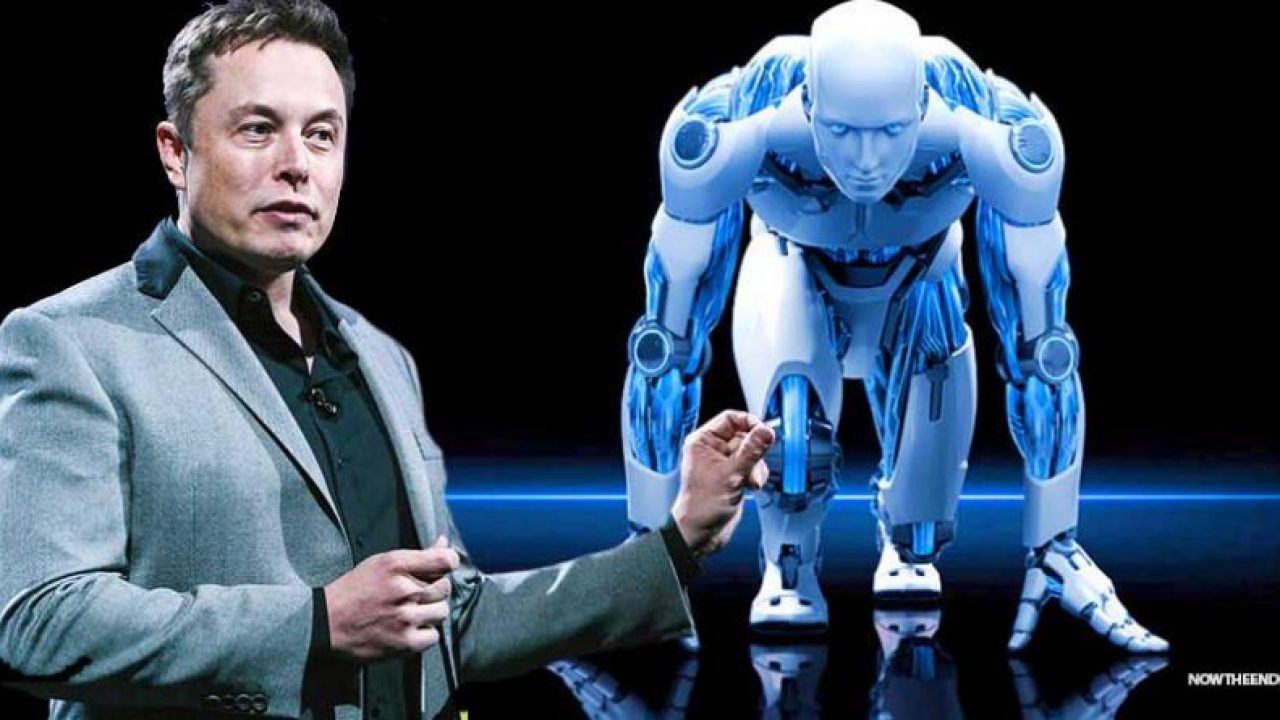
Ray Kurzweil
The revered futurist and pioneer of pattern-recognition technology, has long championed the concept of the technological singularity—the hypothetical point at which AI surpasses human intelligence and initiates an era of unprecedented transformation. Kurzweil’s predictions, rooted in his understanding of exponential technological progress, paint a vivid picture of a future where AI becomes indistinguishable from human intellect, reshaping society in ways we can scarcely imagine.

And, The Godfather of AI
Geoffrey Hinton, revered as the “Godfather of AI,” has been at the forefront of AI research for decades, spearheading groundbreaking advancements in deep learning and neural network architecture. Hinton’s optimism about AI’s potential to surpass human intelligence reflects his deep-seated belief in the transformative power of technology. His vision of a future where AI transcends human limitations challenges conventional notions of intelligence and heralds a new era of possibility.
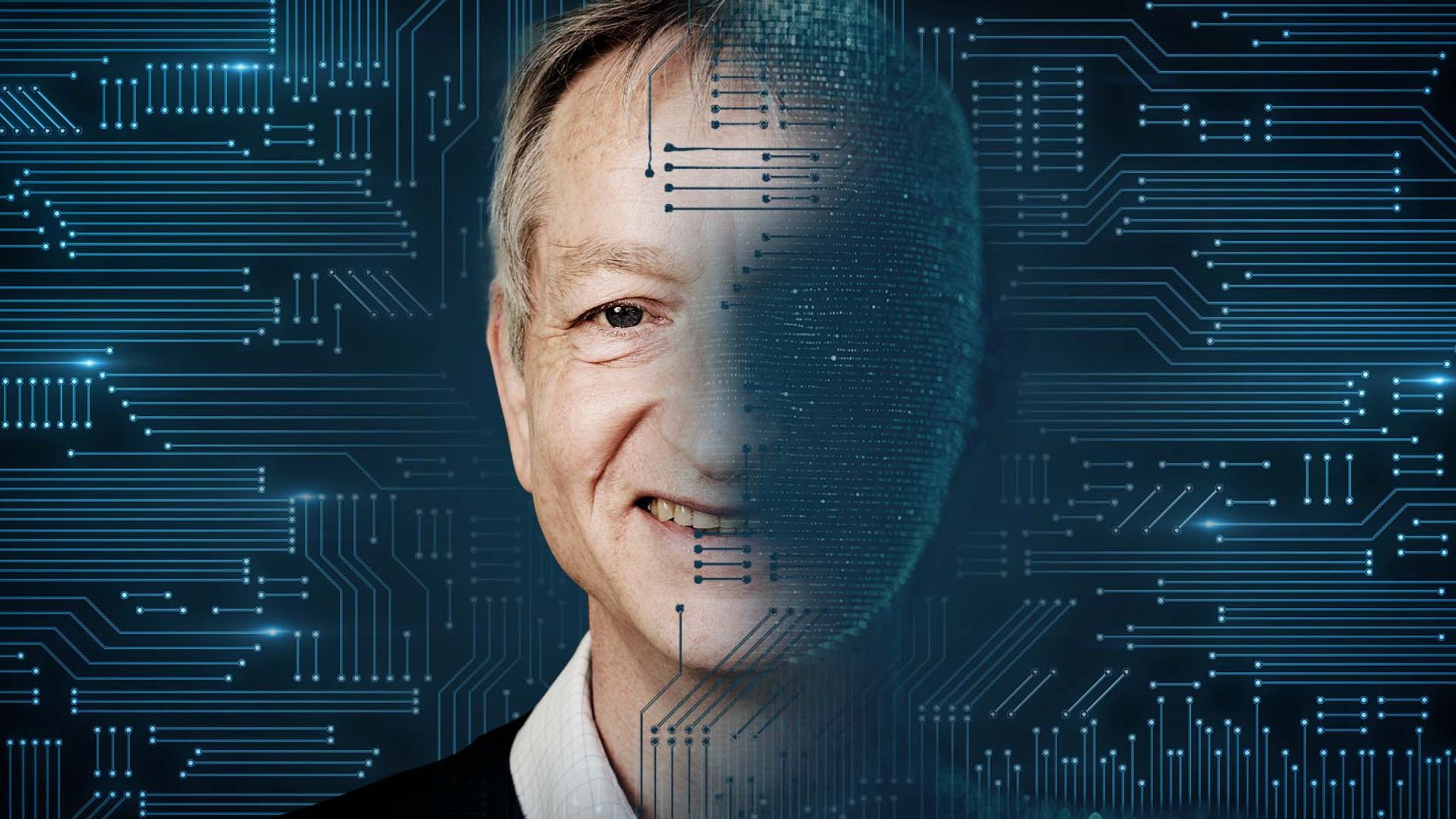
As we stand on the cusp of this transformative epoch, the implications of AI’s ascendance loom large. The prospect of AI surpassing human intelligence raises profound questions about the nature of consciousness, autonomy, and societal governance. Ethical considerations surrounding AI’s role in shaping our collective future demand careful scrutiny and proactive engagement.
In navigating the accelerating pace of AI advancement, it is imperative to foster interdisciplinary collaboration, ethical stewardship, and informed dialogue. By harnessing the transformative power of AI for the betterment of humanity, we can steer towards a future where human and artificial intelligence coexist harmoniously, unleashing boundless opportunities for innovation, exploration, and enlightenment. As we embark on this journey of discovery, let us embrace the promise of AI with open minds and unwavering resolve, mindful of the profound responsibility that accompanies our quest for technological mastery.
Also Read: Nvidia’s Blackwell: Pioneering the Era of Generative AI Revolution
Humans vs. AI
Intelligence, the cornerstone of human cognition, is a multifaceted and elusive concept, encompassing a spectrum of abilities ranging from problem-solving and creativity to emotional understanding and adaptability. As we explore the realm of artificial intelligence (AI), a critical examination of its capabilities vis-à-vis human intelligence reveals a nuanced landscape shaped by both convergence and divergence.
Humans
Humans, endowed with consciousness and self-awareness, possess a depth of intelligence that transcends mere cognitive prowess. Our capacity for abstract reasoning, emotional empathy, and moral discernment underscores the richness of human cognition, enabling us to navigate the complexities of our social and existential existence with finesse. From artistic expression to scientific discovery, humans demonstrate an unparalleled ability to innovate, create, and empathize, drawing upon a vast reservoir of knowledge, experience, and intuition.
Artificial Intelligence
AI exhibits a form of intelligence that is characterized by its computational efficiency and precision. Machine learning algorithms, fueled by massive datasets and powerful computational resources, excel in tasks such as data analysis, pattern recognition, and complex decision-making. From predictive analytics to autonomous driving systems, and even picture forensics, where AI is employed to analyze and authenticate digital images. AI demonstrates remarkable capabilities in domains where quantitative analysis and algorithmic reasoning reign supreme. Its ability to process vast amounts of information and extract meaningful insights at speeds beyond human comprehension heralds a new era of computational intelligence.
Hand-in-hand
However, the distinction between human and AI intelligence is not merely a matter of quantitative superiority but one of qualitative essence. While AI excels in tasks that can be codified and quantified, human intelligence encompasses a breadth of capabilities that defy quantification. Our capacity for empathy, creativity, and moral reasoning transcends the realm of algorithmic logic, enriching our interactions with the world and each other in profound ways. From the subtle nuances of interpersonal communication to the ineffable beauty of artistic expression, human intelligence embodies a richness and depth that eludes replication by AI.
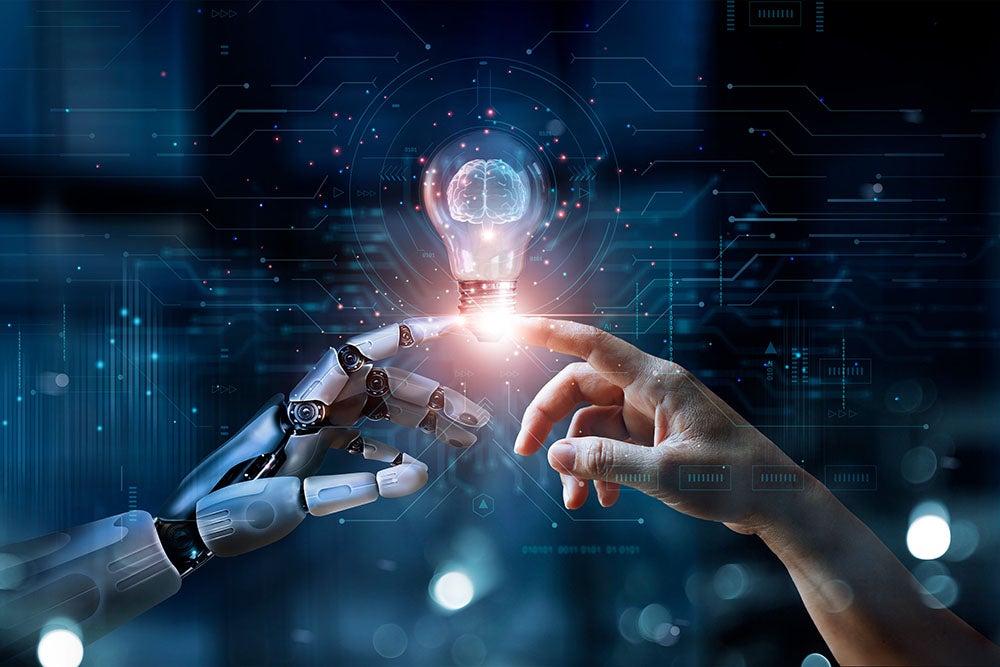
Constraints of AI
Moreover, the limitations of AI become evident when confronted with tasks that require contextual understanding, emotional empathy, and ethical judgment. While AI may excel in specific domains, its capacity for true understanding and consciousness remains elusive. The phenomenon of “AI bias,” whereby algorithms perpetuate and exacerbate societal inequalities, underscores the need for human oversight and ethical governance in AI development and deployment.
Also Read: The Great AI Breach: Google, China, and the Stolen Secrets
Evolution of AI Testing
In the quest to gauge the capabilities of artificial intelligence (AI), a multitude of tests and benchmarks have emerged, each offering unique insights into AI’s evolving prowess. Among these, the Turing Test stands as a seminal milestone, challenging AI to engage in human-like conversation and exhibit a level of intelligence indistinguishable from that of a human counterpart. While the Turing Test has its limitations, it remains a foundational benchmark in assessing AI’s capacity for natural language understanding and communication.
Beyond linguistic proficiency, AI has demonstrated remarkable prowess in strategic thinking and game playing. IBM’s Deep Blue’s historic victory over chess grandmaster Garry Kasparov in 1997 marked a watershed moment in AI history, showcasing the machine’s ability to outmaneuver one of humanity’s most formidable intellects in a game of unparalleled complexity. Similarly, Google’s AlphaGo’s triumph over Go world champion Lee Sedol in 2016 underscored AI’s capacity for strategic foresight and adaptability in navigating the vast decision space of a game revered for its depth and complexity.

Moreover, language understanding evaluations have emerged as a critical benchmark in assessing AI’s linguistic proficiency and comprehension abilities. From reading comprehension tests to language modeling challenges like GLUE (General Language Understanding Evaluation), AI systems are put to the test in tasks that demand a nuanced understanding of context, semantics, and pragmatics.
These milestones and benchmarks, while instrumental in assessing AI capabilities, also highlight the evolving nature of intelligence assessment. As AI continues to advance, new challenges and benchmarks will undoubtedly emerge, pushing the boundaries of AI’s cognitive capacities and challenging our understanding of intelligence itself.
Challenges and Limitations
Despite significant strides in its development, AI grapples with challenges in realms where human understanding reigns supreme. Tasks requiring nuanced emotional intelligence, such as empathy and compassion, remain elusive for AI systems. Similarly, the realm of creativity poses a formidable challenge, as AI struggles to produce truly original and innovative work that transcends mere imitation. Moreover, ethical decision-making presents a complex quandary, as AI lacks the moral intuition and contextual understanding necessary to navigate nuanced ethical dilemmas.
Critics argue that passing benchmarks like the Turing Test, while indicative of linguistic proficiency, falls short of capturing the essence of genuine intelligence and understanding. AI’s ability to simulate human-like conversation does not necessarily translate to a deep comprehension of underlying concepts or emotions. Thus, while AI continues to excel in certain domains, its limitations underscore the irreplaceable role of human cognition and intuition in navigating the complexities of the human experience.
Also Read: Controversy in Code: Decoding Google’s Gemini AI Fallout
Potential Substances of AI Dominance
The prospect of AI dominance heralds a paradigm shift with profound implications for society and the global economy. As AI surpasses human intelligence, concerns about widespread job displacement loom large, threatening to exacerbate existing economic inequalities. The automation of labor-intensive tasks could lead to mass unemployment, exacerbating socio-economic disparities and necessitating comprehensive retraining and reskilling initiatives.
Furthermore, the rise of AI introduces a host of ethical considerations that demand urgent attention. Questions surrounding AI governance, transparency, and accountability loom large, as AI systems wield unprecedented influence over critical decision-making processes in sectors ranging from healthcare to finance. Ensuring equitable access to AI technologies and guarding against algorithmic biases and discriminatory outcomes becomes paramount in safeguarding societal well-being.
Moreover, the specter of existential risks looms large as AI systems evolve beyond human control. The potential for autonomous AI to act in ways contrary to human interests poses profound existential threats, ranging from the proliferation of lethal autonomous weapons to catastrophic system failures with far-reaching consequences. As such, the need for robust ethical frameworks and international collaboration in AI development and deployment becomes imperative in mitigating these existential risks and safeguarding the future of humanity.
Also Read: UK Faces Job Crisis with Over 8 Million at Risk, Will AI be a Curse to the Human Race
What about Public Perception?
The role of public perception in shaping attitudes towards AI cannot be overstated. Media narratives and public discourse play a pivotal role in framing AI technologies as either utopian saviors or dystopian threats, influencing societal attitudes and policy decisions alike. Exaggerated portrayals of AI in popular culture and sensationalized news stories often perpetuate misconceptions and fears, fueling anxiety about job displacement, privacy breaches, and existential risks.
However, fostering a nuanced understanding of AI requires balanced and informed discussions that transcend sensationalism and hype. Educating the public about AI’s capabilities, limitations, and ethical implications is crucial in dispelling myths and promoting responsible AI development and deployment. By engaging in open dialogue and critical discourse, stakeholders can collectively navigate the complexities of AI’s societal impact and ensure that policy decisions are informed by evidence-based reasoning rather than fear-driven speculation. Ultimately, fostering a culture of transparency, accountability, and ethical stewardship is essential in harnessing the transformative potential of AI for the betterment of humanity.
Assuming the Future of AI
While the notion of AI dominance may evoke apprehension, embracing its potential holds promise for transformative advancements in healthcare, education, and beyond. Collaborative endeavors between humans and AI systems present opportunities for innovation and societal progress. By leveraging AI’s capabilities in data analysis, pattern recognition, and decision-making, we can enhance diagnostic accuracy in healthcare, personalize learning experiences in education, and address complex societal challenges. Embracing AI as a tool for augmentation rather than replacement empowers us to harness its potential for the betterment of humanity, paving the way for a future of unprecedented innovation and prosperity.
As we stand at the precipice of a future shaped by AI, the question of whether AI could surpass human intelligence looms large. While the trajectory of AI development suggests remarkable potential, it is essential to approach this evolution with cautious optimism. By fostering interdisciplinary collaboration, ethical governance frameworks, and informed dialogue, we can navigate the complexities of AI advancement while harnessing its transformative power for the betterment of humanity.
Also Read: A Vision for Sovereign AI: India’s Collaboration with NVIDIA





